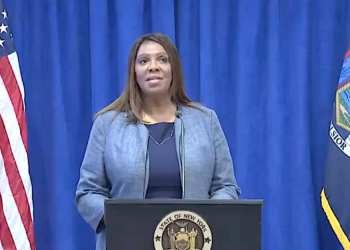
The Jacob Burns Film Center in Pleasantville has a new program for nonprofits in which the medium is, in a sense, the message.
In Reel Change for Nonprofits, teams from area organizations ”“ consisting of staffers, volunteers and even board members ”“ hone in on what they”™d like to convey about their institutions and then craft those themes in videos they learn to make in the 12-week course.
“We enroll institutional teams of two: That”™s the ideal,” said Theresa Dawson, curriculum designer and a faculty member at the Burns Center”™s new green Media Arts Lab, where the program is held. “The reason we look for two is to build that institutional capacity and also, they can be a filmmaking team.”
Since the program began in April of last year, Reel Change has worked with 20 organizations in Westchester and Fairfield County, Conn., including the Greenwich Music Festival in Greenwich; My Sisters”™ Place, a White Plains-based organization that aids victims of domestic abuse; and the Westpac Foundation in Pleasantville, which is committed to peace and justice.
“The first thing we start with is that this should be a piece of advocacy,” Dawson said of the videos. “It”™s not a laundry list. We”™ve all seen those films at the gala dinners. So we ask them, ”˜What do you want to do and how could video craft that message?”™”
Helping answer those questions is the ability to target an audience.
“Knowing the audience and what you want the audience to do is the most strategic journey I”™ve taken these organizations on,” Dawson said.
As the teams identify their audiences and master video techniques, they also learn that not everyone longs to be in pictures.
“Most of the organizations have some issues of sensitivity,” Dawson said. “Some people are happy to tell their story, just not on camera.”
When My Sisters”™ Place decided to make a video on human trafficking ”“ an issue that sadly touches places like Westchester as well as a Mexico or a Thailand ”“ the team realized it could not use real people. So it drew in part on archival footage of this criminal activity, said Steve Farbman, a member of the organization”™s board of directors who participated in the program.
For the Westpac Foundation”™s video on hydrofracking ”“ a potentially toxic and thus controversial means of extracting natural gas from deep in the earth”™s watershed ”“ the organization decided to include American Indians”™ views on the sacredness of the land.
“That”™s what gave the piece wheels,” said Tracy Basile, a Westpac volunteer, who heads up the organization”™s Friends of Turtle Island ”“ non-Native Americans in support of this country”™s indigenous peoples.
Both she and Farbman have nothing but praise for Reel Change and curriculum designer Dawson.
“Theresa (and the Burns”™ staff) were extremely helpful and supportive and continue to be so,” said Basile, whose organization”™s video has gotten the attention of the Westchester County Board of Legislators and actress/activist Debra Winger.
As for My Sisters”™ Place, Farbman said: “It opened our eyes to opportunities we weren”™t taking advantage of. All of these nonprofits suffer from the same thing ”“ not enough money, not enough people to do things.”
The idea of making a video that would raise an institution”™s profile without hiring a professional filmmaker ”“ something many nonprofits could not afford to do ”“ was a great concept, Farbman said.
Now he and the other teams”™ members are also learning what film students from NYU to UCLA have to figure out ”“ that filmmaking is just part of the challenge. You have to distribute your product, whether by placing it on your website, getting it play on YouTube or holding screenings. Distribution isn”™t easy.
To help program graduates weather their growing pains, Dawson said, the Burns Center has created a second program, Reel Exchange.
Farbman for one would gladly sign up for it: “In today”™s world, video is a great way to communicate.”

















